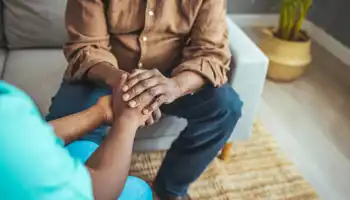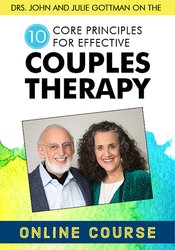How to Encourage Couples to Respond with Empathy Instead of the "Four Horsemen"

When couples walk into your office stuck in cycles of blame, sarcasm, and shutdown, what you’re likely witnessing is the work of the Four Horsemen: criticism, contempt, defensiveness, and stonewalling. These toxic communication patterns are not only predictive of relational distress, they’re also deeply ingrained—and tough to shift without targeted, intentional intervention.
As a therapist, one of your most powerful roles is to interrupt these patterns in the moment and guide couples toward more empathetic, effective communication.
How to Help Couples Replace the Four Horsemen with Empathy
1. Spot the Horsemen in Action
The first step is learning to recognize the Four Horsemen when they appear in session:
- Criticism targets the person, not the behavior ("You’re so selfish").
- Contempt communicates superiority and disrespect ("You’re such a baby").
- Defensiveness deflects responsibility and often becomes a counterattack.
- Stonewalling involves emotionally shutting down and disengaging.
You might have a client who repeatedly dismisses, mocks, and interrupts their partner. Their contempt is masked with humor, superiority, and sarcasm, which is exactly the kind of corrosive communication that predicts relationship demise.
2. Interrupt and Name the Pattern
Once you identify a Horseman, gently pause the conversation. Julie Gottman recommends using phrasing like:
“Can we stop for a moment? I’m noticing some criticism here.”
Then, define the term in non-blaming language. For example:
“Criticism is when we describe our partner as the problem, rather than the issue itself. It often sounds like assigning a negative character trait like ‘You’re selfish’ or ‘You never care.’ That pattern can really erode connection over time.”
3. Teach the Antidotes
Each Horseman has a corresponding antidote that helps couples reframe their communication with empathy and care.
Criticism & Contempt → Softened Start-Up & Appreciation
Instead of blaming, encourage clients to use “I” statements: “I feel [emotion] about [situation] and I need [positive need].” This formula shifts the focus from attack to vulnerability.
Also, help couples build a culture of appreciation: noticing what their partner does right and expressing gratitude. This buffer strengthens emotional safety and reduces the likelihood of contempt creeping in.
Defensiveness → Take Responsibility
The key to transforming defensiveness is even small ownership. Instead of counterattacking, suggest language like:
- “You might be right. I could try to do that differently.”
- “I feel defensive, and I want to hear you better.”
Stonewalling → Self-Soothing & Reconnection
Stonewalling requires recognizing physiological overwhelm and teaching clients to take breaks with the intention to return to the conversation once they’re calmer.
4. Model and Reinforce Empathy in Real Time
Therapists can play an active role in reshaping the emotional tone of the room:
- When one partner responds gently, pause to highlight it: “That was a great example of a softened start-up. Did you notice how differently that felt?”
- When a partner shares something vulnerable, prompt the other: “Can you tell them what you just heard? What do you imagine they might be feeling?”
Expressing empathy isn’t just good technique—it’s healing. When a partner says, “That must really hurt,” after months (or years) of invalidation, it opens the door to a radically different future.
5. Create Structure to Break the Cycle
For couples entrenched in the Horsemen, Julie sometimes uses visual cues (like a bell) or direct reminders (“What are you aware of right now?”) to interrupt automatic responses. You might also use the Gottman-Rapoport Intervention to coach partners through speaking and listening roles with empathy and intention.
Becoming an Empathy Coach for Your Clients
The Gottmans stress that therapy is not about stopping conflict. Instead, it’s about changing how couples handle it. By teaching partners to communicate from their emotions, take responsibility, and respond with appreciation, you help them build resilience and reconnect as allies rather than adversaries.
In the process, you also model the very thing you're teaching: how to slow down, notice what’s happening in the moment, and respond with understanding.
As John Gottman puts it:
“The antidotes to the Four Horsemen aren’t just skills—they’re acts of emotional generosity. And that’s where transformation begins.”
Looking to dive deeper into the Gottman Method? Watch this FREE 60-minute CE Course to guide couples from conflict to connection with confidence.

Drs. John and Julie Gottman on the 10 Core Principles for Effective Couples Therapy






